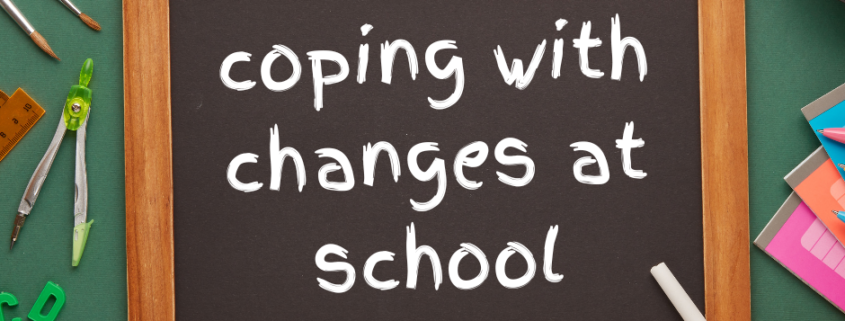END OF THE SCHOOL YEAR – COPING WITH CHANGES AND TRANSITIONS AT SCHOOL
As we draw to the end of the school year and start the long summer break, we find that bereaved children and young people can find this time quite unsettling, especially as there’s lots of talk within schools about new school year and the changes that will happen.
Transitioning at school, whether it’s into a new class with a different teacher or to a completely new school is unsettling for any child, but for a child who is bereaved, it can trigger lots of anxious feelings and worries.
If you are an adult supporting a bereaved child, it’s important that if you notice any change in their behaviour that you take the time to talk to them, let them offload how they’re feeling and work with them to help them overcome their worries and encourage them to embrace these changes. If they are really struggling with the changes they’re facing, it’s really important that you work with the school to ensure they are aware of your child concerns/ worries and they can put strategies in place to support them. This is especially important if your child has experienced a recent bereavement, as the school staff may not be aware of the situation.
If your child is starting a new school then be mindful that you will need to be extra patient with them as they’ve got to navigate around a new environment as well as deal with their feelings. Remember, if you feel like your child needs extra support then make sure you ask for it. The staff will want to make sure that help is put in place to help them as they adjust to their new surroundings.
Bereaved children and young people may find it difficult to cope with the return to school in September, and it may take a while to adjust, but with extra adult support and having people around them they trust to help, it will make things more bearable and in time they will settle into their new routine.
Our Child Bereavement Support Worker team here at Nelson’s Journey have shared a few tips for bereaved children and young people who are concerned about the changes they’re facing at school and ways they can cope when they return in September.
Fiona’s Tip: “You won’t be the only person who will be worried about the changes happening at school, or moving up to high school/ college. It is okay to talk to your friends and tell them the things you are worried about.”
Duncan’s Tip: “If you need to know some information or are worried about anything at all, then make sure you speak to an adult in school who you trust. They will want to help you.”
Adam’s Tip: “If you have experienced a bereavement recently, then you may be worried about what to tell people or what help you might need in school. Plan for this by writing down the bits of your story that you are happy to share with others (e.g. friends, teachers) and also a list of things you feel may help you in school. Share this with a member of school staff and talk through how they can help you.”
Lisa’s Tip: “Before you go back to school, talk to your parent/carer and explain the things that you’ve been thinking about that worry you. Write them down on a piece of paper. As you settle into school, look at the list again with your parent/carer and talk about how things went for you. Sometimes we just need to try something different before we realise that it is okay and that we didn’t need to worry about it so much.”
Amy’s Tip: “If you are allowed to, put something small from home in your pocket like a button, photo or something similar. If you are feeling worried during the school day (and miss being at home) you can touch your pocket or hold the object for a short time to make you feel better and remind yourself that people care for you.”
Keeley’s Tip: “Be honest, let friends, family, and teachers know if you need help, and what you would like that help to be. Smile, it can make you feel better, makes you look friendly and approachable, and can help put others at ease. Just be yourself, there is no one else like you and you are amazing.”
We also understand that bereaved children and young people don’t always want to talk about how they’re feeling or what they need emotionally, but they still need people around them to know and understand how to support them. Our Young Volunteers and Youth Panel recently created a set of Smiles & Tears postcards which could come in really handy when starting back at school in September.
These postcards contain lots of suggested ideas and ways a bereaved child or young person may want to be supported. They even have a little tick box against each idea so they can be tailored to meet their needs and feelings without having to talk about how they’re feeling. There’s even some space to write their own ideas too. Each card is different, there’s one for friends, family, adults at school and a blank one for any other special person who’s helping to support a bereaved child or young person. There’s even one for the bereaved child/ young person on ways they can help and look after themselves too.
You can download our FREE Smiles & Tear Postcards here



